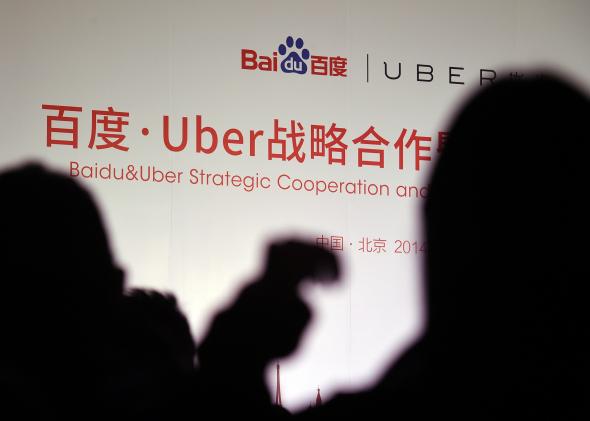According to a report in the Financial Times, Beijing has started off 2015 by cracking down on “illegal” taxis. Beijing’s director of traffic enforcement, Liang Jiangwei, told the FT that online taxi-hailing apps for unlicensed cabs violated the city’s ban on illegal taxis and that their drivers could be fined up to $3,221. The FT also reports that Beijing’s crackdown seems spurred by lobbying efforts from established local taxi companies, whose prices are capped below the market by the government.
By now, Uber is no stranger to local bans. As I tallied up last week, the brash startup has recently gotten itself kicked out of Spain, Thailand, and New Delhi; on Christmas Eve, its CEO was charged in South Korea for violating local licensing laws. But familiarity with controversy doesn’t mean each new one isn’t a blow. When Uber raised its latest round of funding, the $1.2 billion that brought its valuation to a stunning $40 billion, it said much of that financing would be directed toward the Asia Pacific region. The subtext of that statement was that growth in the Asia Pacific region is really important to Uber’s success. Or, put another way, failure to grow could be really harmful to its future.
There are a lot of reasons why people think Uber might actually be worth $40 billion—“ride-sharing” could be a winner-take-all market and strong network effects have positioned Uber as the biggest player; self-driving cars could eliminate most labor costs; Uber could become not just a car service but also a huge delivery business. But another reason is that Uber could achieve tremendous scale by establishing itself in China and the Asia Pacific region. Back in December, Uber secured a strategic investment from search giant Baidu. At the time, Bloomberg theorized that the partnership could help Uber avoid some of the regulatory pitfalls that it’s stumbled over in other parts of the world; Uber CEO Travis Kalanick said the company didn’t have any pressing regulatory issues in China. Beijing’s new crackdown could change all of that.
